Parent’s Guide – Why 3 and 4 Year Old Kinder is a Wise Choice
As a parent, you’re constantly making choices that will shape your child’s future. When it comes to early education, the decision between one and two years of kindergarten can be pivotal. Conventional wisdom around early education often points to the “one-and-done” approach, where parents believe a single year of kindergarten is enough. However, emerging research is shedding light on the significant advantages that a two-year kindergarten program can offer.
Understanding the benefits of an extended kinder journey, particularly during the formative years of 3 and 4, is crucial for navigating your choices as a parent. This comprehensive post explores why a two-year kinder program can be a game-changer for your child’s development, academic foundation, and social growth.
2 Years is Better Than 1: Breaking the Mould in Early Education
Conventional wisdom often leads parents to rush their children through the early years, seeking to get them into the primary school system as soon as possible. However, this mindset overlooks the foundational learning processes that occur in the 3 to 4-year-old age group. The milestones that mark this period range from independent actions like self-dressing to increased emotional literacy, demands, and benefits from an environment that nurtures this ongoing development.
In contrast, a two-year kindergarten program recognises and respects the rich tapestry of development during this time. It allows for a seamless transition from exploratory play and socialisation to a more structured learning environment, better preparing a child for the academic rigours ahead. Understanding this timeline and the unique needs of your 3 to 4-year-old underscores the importance of a program that offers this extended growth period.
Early Education as a Catalyst for Child Development
The benefits of an early education are well-documented. They are the formative years during which your child’s brain is most ‘plastic’, and this neurological development greatly amplifies 2 years of kindergarten. Cognitive functions, socialisation, motor skills, and language acquisition are not discrete transactions occurring at certain ages but rather an interconnected web of development that takes time to unfold.
A two-year kindergarten program provides the stability and continuity needed for deep and expansive learning. It allows educators to craft a curriculum responsive to the child’s individual pace, style, and readiness, offering a more personalised approach to each aspect of child development. Through this rich and varied program, children can further their skills and understanding, setting a strong foundation for later academic success.
Building Blocks for Life: How Kinder Helps with Child Development
Kindergarten education, especially during the 3 to 4-year-old stage, is not just about preparing children for prep school. It’s where they learn essential skills that form the building blocks of their future. Everything they learn in these two years, from creative problem-solving to early literacy, sets the stage for a lifetime of learning and achievement.
This early start in kindergarten can make a substantial difference in terms of language and cognitive skills. Children who attend two years of kindergarten can show an accelerated ability in language and literacy, which can make the transition to primary school significantly smoother. Furthermore, in these early years, a foundation for understanding math and science is laid, with the right program promoting an inquisitive approach that carries through to later learning.
Socialisation and Emotional Intelligence: A Kinder Journey Must-Have
The social playground of kindergarten is a critical venue for children to learn to navigate interactions with their peers, teachers, and the broader community. A one-year program, while beneficial, may provide limited time for a child to truly develop these social and emotional skills that are increasingly valued in adulthood.
A two-year kindergarten, on the other hand, allows children to form lasting friendships, practice empathy and conflict resolution, and experience a broader range of social dynamics. This extended time makes them more socially resilient and instils in them the importance and nuances of working in a group. They are more likely to emerge not just as academically ready for school but in a sound emotional state to embrace the future challenges of the school and beyond.
The Academic Edge: Kinder’s Influence on Future School Success
When evaluating the long-term impacts of a two-year kindergarten program, one cannot overlook the academic edge it provides. Studies have shown that children who attended both years of kindergarten were 15 to 20 weeks ahead of their peers who only attended one year, with these gains persisting into later schooling.
By the time these children reach 16 years of age, they demonstrate higher scores in both English and math subjects, illustrating the lasting influence of a deeper kindergarten experience. This advantage is not just in terms of content knowledge but also in their intellectual maturity and readiness to tackle complex ideas and problem-solving, setting them up for continued excellence in their educational journey.
The Resounding Benefits of 3 and 4-Year-Old Kinder
As a parent navigating the terrain of early education, your choices today will resonate throughout your child’s life. Opting for a two-year kindergarten program is an investment in your child’s holistic development, preparing them to flourish academically, socially, and emotionally. The research and parental anecdotes undoubtedly sing the praises of the extended kindergarten journey for 3—and 4-year-olds. While the decision is indeed a personal one, one thing remains clear — the benefits are both immediate and far-reaching.
For further information, visit the Vic Gov website or check out Cire’s Early Learning services and programs.
Explore our kindergarten locations in Mt Evelyn, Yarra Junction, and Chirnside Park.


